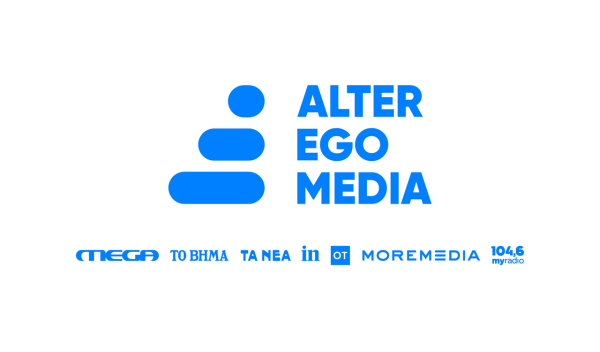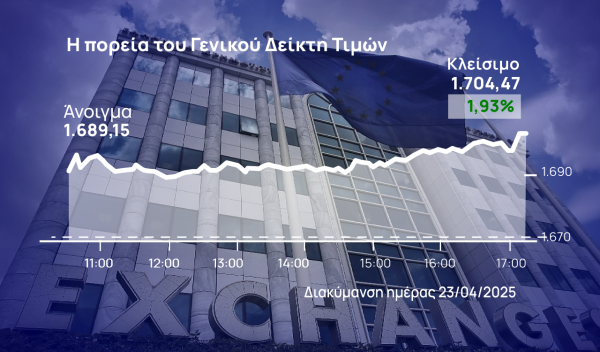
Rising prices are changing consumer habits, causing concern in households and by extension in businesses, according to the large survey by Opinion Poll for the Professional Chamber of Athens.
Eight out of ten cut back on shopping and energy consumption
The research explored the effects of inflation on the lives of citizens, as well as the opinions on its causes, as well as on the government measures that have been decided.
Also read: PwC: How inflation and supply chain disruptions are changing consumer habits
Among other things, the main conclusions state that a large percentage of citizens have reduced spending, purchases, and other expenses due to rising prices.
In particular, 83.7% proceed with reductions in energy consumption, 83.2% limit purchase of consumer products, 66.4% limit personal car travel and 66% vacation days. Also, 18.7% make some cuts in terms of the tutoring for their children to help with tertiary educational entrance examination.
Difficulty paying off loans
At the same time, it seems that the increases make it very difficult for 53.3% to meet their obligations such as repaying loans, credit cards, etc. However, 26.8% answer that they have little or no difficulty.
66.5% state rather and definitely pessimistic about their personal financial situation while 32.1% state definitely and rather optimistic.
The effect of war
83.3% consider that Russia’s invasion of Ukraine has had a global effect, thus also on Greece, and on the rise in prices as a whole.
47% consider that the international situation is the main reason for any increases, with 45.2% considering the policy of the Greek Government as the main reason.
No state aid for one in two
Regarding overall measures taken by the Government to support households, 54.1% consider them to offer almost no help, 30.2% consider them to be little but necessary help and 14.2% considered to be a significant help given the circumstances.
49.3% declare little or no satisfaction with the Government’s measures to lower energy tariffs, while 45.3% declare very and fairly satisfied.
At the same time, 45.4% believe that the next bills will be significantly reduced, with 46.2% having the opposite opinion.
49.9% have a positive and rather positive view of the new Fuel Pass2 Subsidy Program, with 43.9% having the opposite opinion.
However, 58.3% believe that it will not relieve the owners of the vehicles, while 37% have the opposite opinion.
Taking new measures
Regarding the conclusions of the research, the president of the Chamber, Mr. Yiannis Hatzitheodosiou, emphasized that the results of the survey show that the standard of living of the citizens has changed dramatically, negatively affecting the entire spectrum of the economy and the operation of businesses. Mr. Hatzitheodosiou noted that it is worrying that 66.5% say they are pessimistic about the future. He reiterated the official position of the Chamber that we now have to calmly look at the adoption of other measures, beyond those that apply today and which are mainly subsidies. The new measures should be implemented with the aim of reducing prices, both in energy and in basic goods, and this can only be achieved by reducing the VAT on fuel and the VAT on specific products.”
Latest News

IMF: US Tariffs Shake Global Economy, Outlook Downbeat
IMF slashes global growth forecast to 2.8% as U.S. tariffs create uncertainty and ‘negative supply shock

First Step Towards New Audiovisual Industry Hub in Drama
The project is set to contribute to the further development of Greece’s film industry and establish Drama as an audiovisual hub in the region

Airbnb Greece – Initial CoS Ruling Deems Tax Circular Unlawful
The case reached the Council of State following annulment applications filed by the Panhellenic Federation of Property Owners (POMIDA)

Mitsotakis Unveils €1 Billion Plan for Housing, Pensioners, Public investments
Greek Prime Minister Kyriakos Mitsotakis has announced a new set of economic support measures, worth 1 billion euros, aiming to provide financial relief to citizens.

Alter Ego Ventures Invests in Pioneering Gaming Company ‘Couch Heroes’
Alter Ego Ventures' participation in the share capital of Couch Heroes marks yet another investment by the Alter Ego Media Group in innovative companies with a focus on technology.

Corruption Still Plagues Greece’s Driving Tests
While traffic accidents continue to claim lives on Greek roads daily, irregularities and under-the-table dealings in the training and testing of new drivers remain disturbingly widespread

Pope Francis Died of Stroke and Heart Failure Vatican Confirms
As news of the official cause of death spread, tributes poured in from across the globe. The 1.4 billion-member Catholic Church is united in grief, remembering a pope who championed inclusion, justice, and compassion

Increase in Both Museum Visits, Revenues for 2024
As expected, the Acropolis was the top archeological site in the country, followed by Sounion, Mycenae, the ancient theater of Epidaurus, and Vergina in northern Greece

Where Greece’s Tourists Come From: A Look at 2025’s Top Visitor Markets
The United Kingdom continues to hold the top spot as the largest source of incoming tourism, with 5.6 million seats booked for Greece this summer — up 2.2% from last year. This accounts for 20% of all international air traffic to Greece

Pope Francis: A Pontiff Who Reshaped the Papacy and Sparked a Global Conversation
His first words from the balcony of St. Peter’s Basilica—“Brothers and sisters, good evening”—set the tone for a pontificate that would challenge norms, favor mercy over dogma, and bring the papacy closer to the people.












![Πλημμύρες: Σημειώθηκαν σε επίπεδα ρεκόρ στην Ευρώπη το 2024 [γράφημα]](https://www.ot.gr/wp-content/uploads/2025/04/FLOOD_HUNGRY-90x90.jpg)



![Ξενοδοχεία: Μεγάλο το ενδιαφέρον για επενδύσεις στην Ελλάδα – Η θέση της Αθήνας [γραφήματα]](https://www.ot.gr/wp-content/uploads/2025/03/Athens-hotels-90x90.jpg)








![ΔΝΤ: Καμπανάκι για δημόσιο χρέος από δασμούς και αμυντικές δαπάνες [γράφημα]](https://www.ot.gr/wp-content/uploads/2024/05/30859482_Sharone-perlstein-microfinanace-debt-800x500_c-600x375-1-1.jpg)















 Αριθμός Πιστοποίησης
Αριθμός Πιστοποίησης